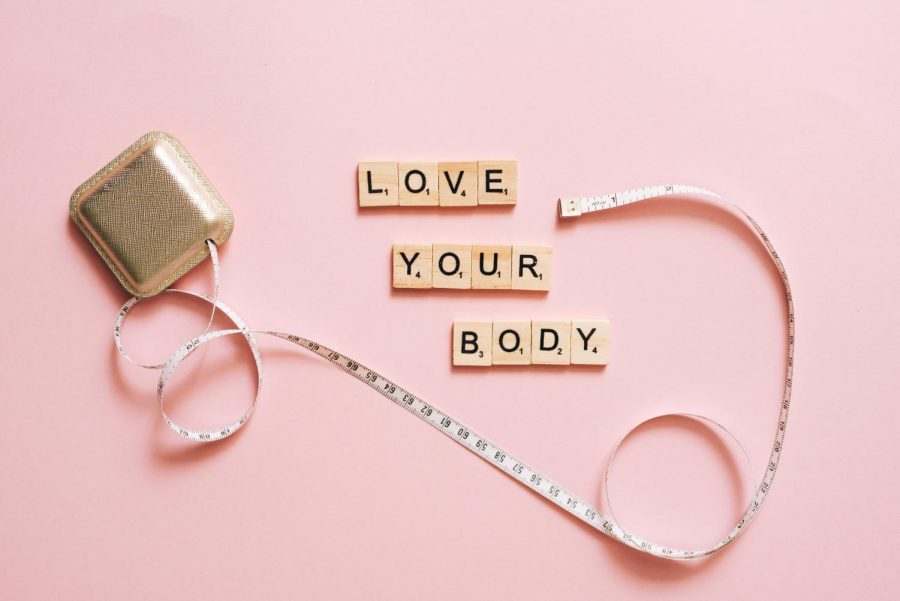Mendenhall: Body Positivity is Still Polarizing in the Media
May 22, 2022
In the last 10 years, the term “body positivity” has taken social media by storm. Body positivity, as a movement, aims to change the societal standards surrounding appearance. This can include weight, body shape or size and gender norms. The diet industry and its diet culture have received backlash for enforcing uncompromising body standards.
Due to its promotion all over social media, influencers and celebrities often find themselves attacked by members of the body positivity movement. Many feel angry that celebrities do not use their status and platforms to discuss body-inclusive agendas. Others unwaveringly support celebrities for being outspoken about it. The body positivity movement doesn’t justify baselessly pointing fingers at celebrities or encouraging unrealistic diet tactics. To achieve real progress, social media users and creators alike need to find a balance of healthy attitudes.
Many celebrities support the body positivity movement to a certain extent. However, few are as outspoken as famous faces including Lizzo, Ashley Graham, Selena Gomez, Sam Smith and Rihanna. Fans are quick to jump to these celebrities’ defense when they come under fire for other, often unrelated issues. They accuse attackers of being fatphobic and unsupportive of the body positivity movement or try to “cancel” them.
Today, getting “canceled” remains an extremely harmful trend. Cancel culture exists as a big problem throughout nearly every social media platform. However, the fans of some of these supportive celebrities now shame their once-idols. For example, Lizzo began posting her exercise regimen on social media. She also follows a vegan and plant-based diet. Fans have heavily critiqued the artist, assuming that these lifestyle changes came about because of Hollywood pressure. People have the right to make the lifestyle changes they feel would benefit them. We shouldn’t shame celebrities for making those changes simply because of their social status.
Recently, some high-profile influencers have become hot topics for the movement — some receiving relentless backlash. But when is the backlash justifiable? Kim Kardashian stirred controversy at the most recent Met Gala. She revealed that she lost 16 pounds in three weeks, solely to fit into a vintage Marilyn Monroe gown. While she achieved her goal, the announcement raised questions about the sustainability, ethicality and practicality of her dieting methods.
Kim Kardashian’s strict regimen included a variety of rapid weight loss techniques. In an interview with Vogue, Kardashian stated that she would wear a sauna suit at least once a day, cut out all carbs and sugar and only eat “extremely clean” vegetables and protein. While a sauna suit and such rapid weight loss might not be achievable for everyone, making exercise and diet changes is definitely doable. Using a sauna suit seemed the most controversial aspect, due to the risks involved in using one for weight loss.
Rebel Wilson faced a similar dilemma. She announced 2021 as her “year of health” and subsequently lost 75 pounds. Everyone freaked out when she started to lose weight, and body-positive critics had a heyday accusing her of falling victim to diet culture and fatphobia. Getting upset about celebrities making healthy lifestyle changes (diet, workout regimen) is counterintuitive to the body positivity movement. I find it damaging that those fierce supporters of body positivity often can’t support the non-scale victories of any individual, social status aside.
Sometimes, celebrities certainly do use their platforms to promote unhealthy products like weight loss teas and appetite suppressant suckers. These deceiving products advertise quick results with minimal exercise, claiming to boost metabolism and curb hunger. Without some kind of lifestyle change, like physical activity or diet modification, these gimmicky products will likely not produce exceptional results. However, more realistic approaches to dieting aren’t as far-fetched or negative as critics point out.
We must remain careful as we discuss dieting, as the topic has sensitive and triggering implications for many people. Body image is one of the biggest concerns for young adults, and social media actively targets those insecurities. I’ve seen many Instagram and Twitter advertisements that offer “customizable nutrition calculators” that are not error-free. In situations like these, it’s important to remind ourselves that we know our bodies best.
Both crash dieting and fad dieting are unhealthy. But if someone decides to make the personal decision to eliminate a specific item from their diet, who are we to say otherwise? In many situations, people may deal with dietary restrictions, like lactose intolerance. My sister has lived her entire life mindful of dairy products, because if she doesn’t, she feels sick and bloated. The decision to sacrifice products that keep us from feeling well doesn’t warrant unsolicited criticism.
The body positivity movement is instrumental in starting much-needed conversations about taboo topics like weight, body size and gender. However, it can become negative and difficult to navigate at its worst, as nothing and no one can ever make everyone 100% happy.









John Hedberg • May 22, 2022 at 9:41 pm
I highly recommend taking the U’s NUIP 1020 class, which is entry-level nutrition and exercise knowledge. Overweight and obesity are real categorized health conditions. Obesity, in particular, leads to many of the country’s top diseases ending in death, like cardio-vascular disease and heart attack, stroke, cancer, hypertension, and diabetes. Body image aside, making certain we’re balancing calorie intake with calorie expenditures, getting proper nutrients from whole food sources, and getting at least 30-60 minutes of good cardio and strength exercise every day are vital to avoiding obesity-related diseases which are expensive and reduce quality of life, because you simply don’t feel good a lot of the time. Healthy tends to feel better!
I took my NUIP 1020 class in person with Sydney Abbott, who did a good job adding context and addressing questions: it was my favorite class. The online class is also available most semesters. It’s life-changing.
Best Regards,
J Hedberg